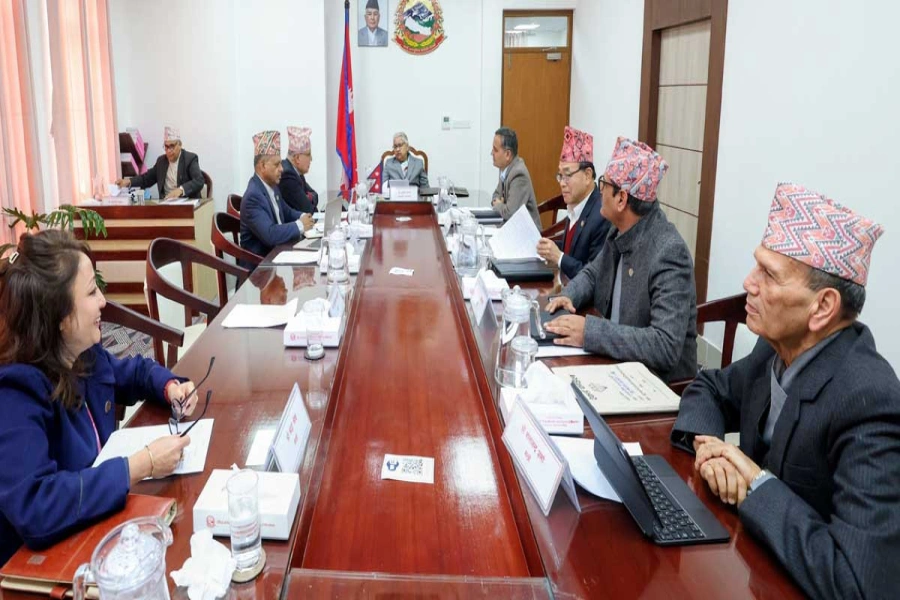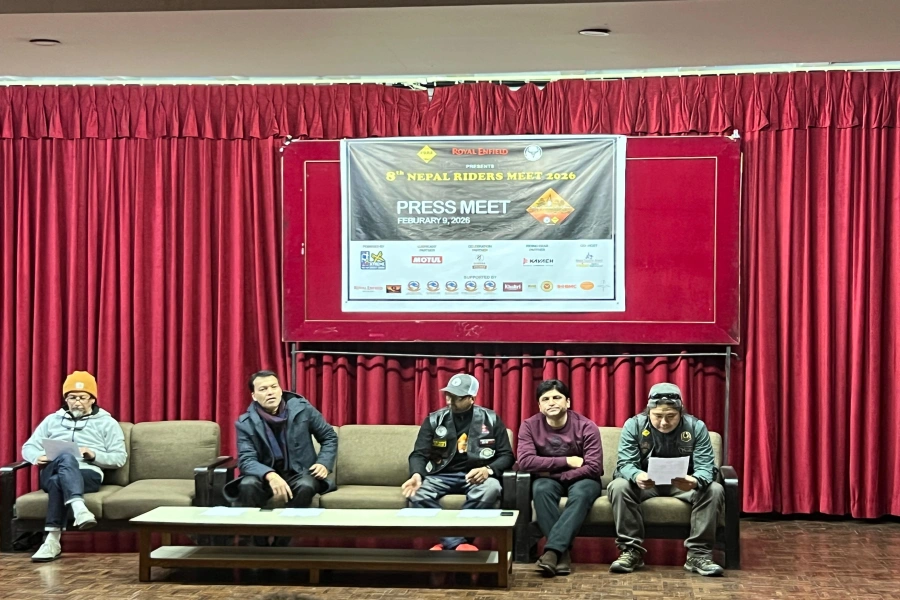Political economy of Oliology is oligopolistic, part of proto-fascist movement that combines xenophobia, chauvinism, communalism and ethno-nationalism
Amidst the brouhaha over streaming results of phased local elections under a contested constitution, very few seem to care anymore that most survivors of the Gorkha Earthquake are going to remain in makeshift shelters for the third monsoon in a row after enduring triple winters in more or less the same condition that existed post-catastrophe in early summer two years ago. The most adversely affected survivors—Dalits and Janjatis of mid-mountains—are trying to cope with their lot as best as they can largely on their own.
Meanwhile, coercive instruments of the state have violently crushed the third Madhes Uprising. The rush for passports in southern plains is stronger than ever before. Import bills continue to soar with ensuing increase in customs and duties. Exports stagnate but there is little pressure for course correction. The government is secure and there is no challenge to regime stability. The international community is content with the apparent normality in an inherently volatile country.
With their heads buried in ‘asocial’ media, the White Shirts are happy that the political storm that raged in the country between 2006 and 2013 has passed. The mainstream media, as is their wont everywhere, are diligently parroting official lines to protect and promote interests of plutocrats. When asked to bend to defend ethno-national interests of the PEON in the wake of the third Madhes Uprising, the media and the intelligentsia obligingly prostrated at the sacred feet of the government. Standing up is a struggle against the force of gravity, which requires a lot of effort and considerable willpower. It’s much easier to wallow in the comfort of being stenographers of power that produces apologia for the ruling elite.
When the history of people’s struggles post-2015 in Nepal is written, someone will probably note with surprise that there was a very feeble voice of dissent in the public domain. From among the army of Nepali littérateurs, Khagendra Sangraula stood out almost all alone. Perennial rebel Pradip Giri saved the face of the political class. Lone warrior of the civil society Devendra Raj Pandey tried to counsel restrain. Conflict-resolution stalwarts such as Daman Nath Dhungana, Padma Ratna Tuladhar and Sunder Mani Dixit worked overtime to emphasize the importance of accommodation. All to little avail, because nobody from the mainstream media—not even to cite as an exception—was willing to lend them an ear, let alone amplify their voice. Perhaps it was the production of an ideology—Oliology to name the beast—that silenced the media and the intelligentsia into willful silence and abject submission.
First private sector cargo train from India arrives in Birgunj

Slick gambit
The premise of Oliology as an ideology probably began with the signing of 16-Point Conspiracy (SPC) in June, 2015, which was intended to strengthen the hold of the PEON over state and society. In order to do that, the concept of secularity had to be diluted.
Republicanism needed to be transformed into oligarchy. If federalism couldn’t be done away with forthwith, it was necessary to ensure the continuity of PEON hegemony through gerrymandering of provincial boundaries. The spectacle of local elections—phased over several months—was to be a colorful divertissement to cool opposition.
The SPC stratagem has succeeded beyond belief. The scheme was crafted mainly to sideline Janjatis and keep Dalits in their place. Even though truncated by design to divide the community, the Madhesis at least have a provincial base to distinguish their cultural identity and ensure political dignity. From Magars to Tharus and from Limbus to Tamangs, no Janjati shall have a claim over their ancestral homeland. In all likelihood, the PEON will continue to dominate even the Madhes province through divide and rule strategies already in place in the name of language, caste and religion, but the ruling elite will have to pay at least lip service to Madhesi pride. There will be no such compulsions to hide Khas-Arya hubris in any other of the seven provinces. By enthusiastically voting in phased polls, the Janjati electorate has endorsed its own marginalization. The Pahadi Dalits have acquiesced to be dominated by Taagdhari castes.
It’s shocking that the Janjati and Dalit politicos of mainstream parties failed to see through the game. The dominant groups always prefer local governments over provincial structures for the former lack the critical mass to challenge its hegemony at the center.
That was once the crux of political differences over a constitutional issue between Mahatma Gandhi and BR Ambedkar in India. Babasaheb insisted that Dalits, or Muslims for that matter, will always remain at the mercy of local Hindu caste hierarchy in Gandhi’s Gram Swaraj. It was only in provinces that the downtrodden will succeed in organizing and building alliances to challenge the hegemony of Brahmanism. The framer of the Indian constitution prevailed and provinces are called ‘states’ in India even though none of them has a separate constitution.
The SPC went beyond promulgating a constitution through fast-track by steamrolling all opposition. It succeeded in producing an ideology, which shall continue to rule the minds of the people long after its initial framers are gone from the political scene.
By the sound of it, the ideology of Oliology seems to have been named after its primary beneficiary: A convicted criminal that ensured his place in history by getting the line of succession to the post of prime minister incorporated in the constitution. The name however comes from the concept of oligopoly in the marketplace in which a small number of players dominate the field. It implies political oligopoly of main political parties that control politics through strategies of competition, cooperation and consensus.
Howsoever sound, a political program has to have a philosophy of life and the intention to inculcate social, cultural and economic values in order to be called an ideology. On this count, Oliology had an advantage: It could readily draw upon capture, control and command templates of Ranarchy and Mahendrism. For the definition of the ‘people’, Oliology formulated a brand-new category by combining two contradictory terms of identity. Khas implies indigenous tribes of Himalayas that believe in equality of birth.
Aryans of South Asia are later immigrants that live by hierarchy of castes. Despite relatively high rates of intermarriages, fusing the two into one is a political project with ulterior motives.
The political economy of Oliology is oligopolistic by definition. It’s a part of the proto-fascist movements worldwide that combines xenophobia, chauvinism, communalism and ethno-nationalism of the ‘self’—the Khas-Arya in the case of Nepal. The front party of the PEON has already perfected its economic model by patronizing business cartels and service syndicates as also by protecting and promoting loyal 4B (bankers, brokers, builders and bureaucrats) cronies. The prostrated media has no spine left to question the status quo. With youths exiting the country in hordes, there is little likelihood of Oliology being rescinded, let alone replaced, any time soon. Odds appear so insurmountable that Upendra Yadav refused to accept that Madhesbad is an antithesis of Oliology and the synthesis of liberal democracy and politics of dignity.
Fateful precedence
Singularly unfortunate as it may appear to the survivors of the Gorkha Earthquake, propensity of the PEON to capitalize a catastrophe isn’t new. In the wake of Bihar-Nepal Earthquake of 1934, one of the first major political decisions Juddha took was to strike off the so-called ‘C’-Class Ranas off the succession list. In time, it turned out to be his greatest undoing as Ranarchy lurched towards its demise, but the coup de main of Juddha was meant to maintain Rana primacy.
When still a crown prince, Mahendra discovered that the geopolitics of disaster could be used to his advantage. He began to consolidate state power and manipulate relationships of authority through demographic transfers and politics of patronage when massive floods swept several parts of mid-mountains and plains in Nepal in the mid-1950s and continued to exploit the cycle of floods and draughts in Madhes in early-1960s to strengthen his regime. There is an exception however; King Birendra’s efforts to emulate his maternal grandfather and father badly boomeranged when he tried to extricate himself out of the Indian embrace after the 1988 earthquake.
The Oliological train is trundling along proto-fascist track. Terrified of being run over, Upendra Yadav was the first to jump on it. Other fellow-travelers are likely to join the queue when the ideological carriage reaches Province Number Two. Smart Madhesis have already begun to devise strategies of changing the subject, self-flagellation and internalization of inferiority to enhance prospects of cooptation. Resistance is likely to be lonely and long.







-1770648553.webp)





























